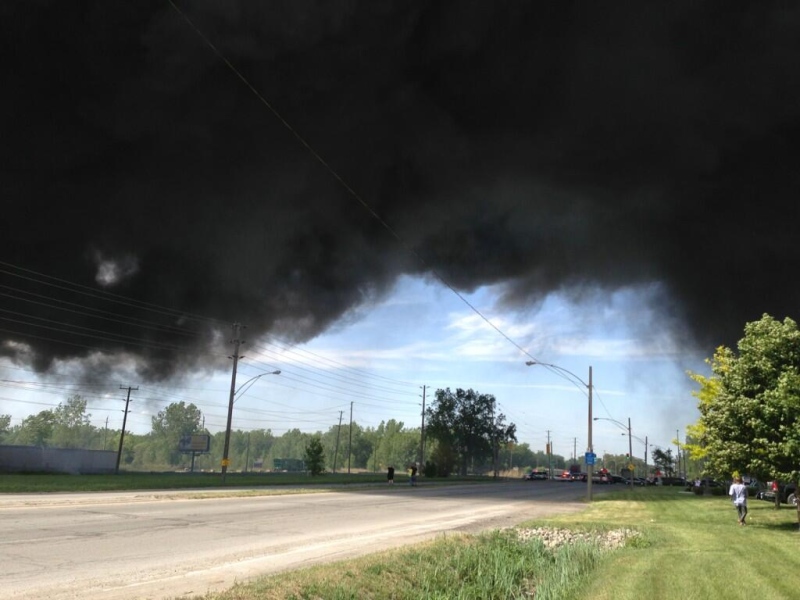WINDSOR, ONT. -- As COVID-19 cases continue to climb in the agri-farm sector in Essex County, Ontario Premier Doug Ford says he is looking into mandatory testing for workers.
Ford has been saying for weeks that he can’t force the migrant workers to get tested, but now he says he is consulting with legal experts to see if it can be done.
“I would like to look into mandatory testing,” says Ford. “It doesn’t hurt anyone, you come into the country, you self-isolate for two weeks, you get tested and it makes everyone feel more comfortable.”
There have been about 1,000 cases in the agri-farm sector in Windsor-Essex. Two workers have died in the region.
The Windsor-Essex County Health Unit says there are COVID-19 outbreaks at six agricultural facilities in Kingsville and two in Leamington. Out of the 53 new cases in Windsor-Essex on Friday, 43 were in farm workers.
“We have to get everyone tested so we can trace where it came from,” says Ford.
There are about 8,000 agri-farm workers in Essex County. He said a second wave of about 3,000 workers are expected to come into the province. They are required to self-isolate for two weeks before working.
“It’s frustrating when I beg and plead to get them tested,” adds Ford.
Ford has said previously some farmers are cooperating with testing.
Mucci Farms public relations and digital marketing manager Ajit Saxena says their team of 400 people is getting tested. It’s the fourth time they’ve brought testing on site.
Saxena says Mucci Farms in Kingsville has had a handful of recent cases. There is no clear number, as mass testing is ongoing. Anyone who chooses to not get tested may be asked to isolate for 14 days.
The reps say it’s not mandatory, because they’re not forcing anyone to do it and no one loses their job.
Saxena says Mucci Farms is working with government officials to establish protocol and determine if that will be paid leave.
Mucci reps say they will be adamantly following all government protocol.
Leamington Mayor Hilda MacDonald has been outspoken on the need for mandatory testing as a condition of employment, and she applauds the move.
“We need our big farms to show that, we need them to set the example, it’s mentoring, it’s mentoring to the small ones and the ones that are afraid, by showing, 'look, myself as a big farm, I’m willing to take this risk for the greater good and that’s what I’m doing' and that’s a great message,” she said.
MacDonald says 46 of the 176 area farms have now undergone testing for COVID-19.
She says other sectors are tested as a condition of employment — and this one should be no different.





























